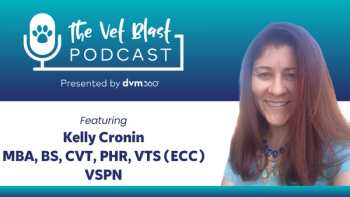
Prepare for the inevitable: Reduce liability from human-animal bond
Keep your staff current with new procedures, existing protocols
The human-animal bond is clearly leading to a new burden of risk and potential litigation for veterinary hospitals.
It is highly probable that the nation will follow Rhode Island and California'slead in terms of pet classification as something more than chattel property.Even though the most recent attempt in Colorado was defeated, it is justa matter of time. When this legal reclassification happens, the incidenceof lawsuits will increase dramatically as pet owners sue for the emotionaldistress of pet loss.
Empathetic juries may offer significant monetary awards reflecting thevalue of pets as companions, rather than the inherently and relatively lowvalues associated with animals simply considered to be chattel property.
We recommend that you consider implementing new procedures and improveexisting protocols to continually move the practice toward increased riskmitigation. Lag behind, and you may unwittingly incur the cost of defense,a small price when compared to potential devastation of bad publicity, staffturnover and sleepless nights.
Risk strategies
Here are some ideas to consider:
* Hospital employees must stay on their game. Increasingly, youwill be challenged to assure documented continuing education at all levelsof practice, which maintains the knowledge and skills of veterinarians,technicians, receptionists and kennel personnel. Assure every individualregularly spends time away from the practice in formal education as wellas through required in-house seminars and auto-tutorial regimens.
* Periodic in-house veterinary meetings should establish currentprotocols and procedures for dealing with pet care issues. Vaccination frequencyor lowest level laboratory workup for specified medical conditions shouldbecome standard operating procedures. Documented procedures and staff traininglead to clear understanding by each employee as to what should be communicatedto the client in a particular case type and at what point a doctor's consultationmust be obtained in clarifying points of confusion or where the client desiresless than the optimal case management because of monetary constraints.
* Keep abreast of professional standards of care. Know the levelof animal continual supervision required in your state and jurisdictionfor your practice type. Doctors and staff should know their limitationsand seek second opinions or offer specialist care where appropriate.
Lawsuits and claims often result not from error or omission, but becauseof a breakdown in communication with the client. Client communication issuesmust be continually refined and improved.
Informed consent
Informed consent is the keystone of client communication. Written estimatesand sign-off by the client prior to treatment or surgery are essential.Documentation requires the institution of multiple pre-surgery, pre-anesthesia,pre-dental and pre-medical treatment forms.
Veterinarians and technicians must take the time to provide the clientwith adequate information regarding a proposed treatment plan. Ideally,that information would be provided in a written format and supplementedverbally to assure the client has a complete understanding prior to authorization.
Signed consent forms must be archived. Explore technology that can improveefficiency for information gathering and secure storage while decreasingspace requirements. High-speed scanners, compact disks, or DVD backups willbecome increasingly more common.
Other electronic alternatives are available now and can be implementedas you move forward with strategic plans for overall practice database computersystem changes and new software integration.
For example, new tablet PCs will allow full mobility for veterinarians.Practice forms, such as consent forms and check-in histories, can be loadedelectronically. Client signatures may be scribed directly on the tabletPC and then saved electronically through burning to CDs or backup on thepractice network server.
Enough insurance?
Re-evaluate insurance coverage. Veterinary malpractice insurance is inexpensive.It will probably not continue to be so, as lawsuits increase in this areaof emotional distress, as state laws change. Malpractice insurance shouldbe obtained at the highest attainable level for the hospital as a wholeand for doctor personal coverages. Associate veterinarians must also becovered.
In the event your practice general liability insurance policy also providesmalpractice coverage, make sure that each veterinarian is listed on thebusiness-owners policy as a named insured.
The alternative or supplemental approach would be insurance through theAVMA Professional Liability Insurance Trust (PLIT) for every employee andcontract veterinarian. The PLIT, being focused on veterinarians exclusively,provides legal counsel that may be several notches above which could beprovided by a business-owners policy.
Contact the AVMA to receive information about professional license defenseendorsement. This low-cost premium provides coverage for defense in theevent of a complaint with the state licensing board by a client.
For boarding of healthy pets as well as housing those that are sick,make sure the claim allowance of the insurance policy is high enough forhigh-value animals that might be lost while being walked outside, or hangthemselves in runs, or incur some other terrible injury while under yourcontrol.
We all hope that no unfortunate events occur, but the nature of veterinarypractice is such that accidental injury and death to animals while in thecare of a veterinarian is always a potential risk. Make sure you continueto improve the procedures, protocols and insurance coverage that mitigatethe loss of sleep and anxiety that each practice owner inevitably experienceswhen the worst imaginable does happen.
Look out for legislation
Watch proposed legislation and dialogue in your city, state and nationwide.Already, various jurisdictions are attributing anthropomorphic characteristicsto pets. The veterinary profession has worked hard to ensure that the human-animalbond would be engrained in the fabric of the world and American society.These efforts have been so successful that the inevitable has occurred.Some individuals will find legislative recognition of the bond as a ripeopportunity for lawsuit.
The mere fact that a practitioner has not committed malpractice is nocause to relax. With higher stakes for awards, greater probability existsthat animal owners will wrongfully accuse in hopes of gaining settlement.When awards are low, the probability of suit or an individual taking thetime to bully a veterinarian into settlement are nominal.
With the advent of attribution of rights and the potential for loss ofa pet when its status is much more than just chattel property, the potentialfor lawsuits increases substantially, either through the courts or pressureon insurance carriers to settle.
Please make sure you continue to evolve practice procedures and standardsto mitigate the risk as the full ramifications of the human-animal bondunfold in the legal arena.
Assure you maintain adequate malpractice coverage. Establish trainingprograms and protocols. Document them. Demonstrate that every practice employeewho is licensed or certified has satisfied more than the minimum legallyrequired level of skill in accord with standards for the region and particulararea of practice expertise.
Judiciously raise your fees on a regular and proactive basis. The costof insurance, training, recordkeeping and documentation, and informed consentprocedures will increase over time. Make sure the practice's fee schedulereflects the risks you take in providing veterinary care to your community.
Newsletter
From exam room tips to practice management insights, get trusted veterinary news delivered straight to your inbox—subscribe to dvm360.




